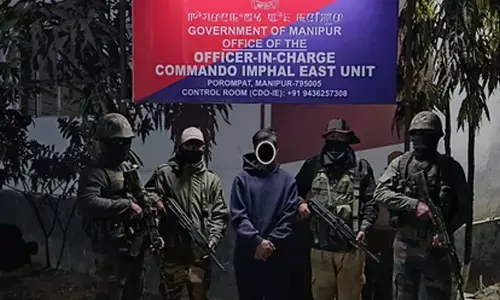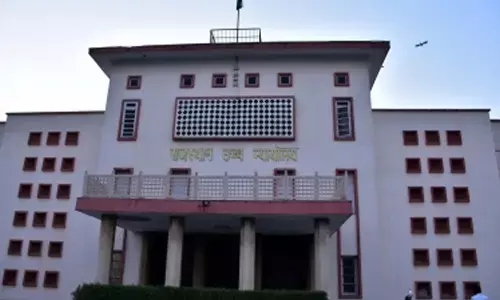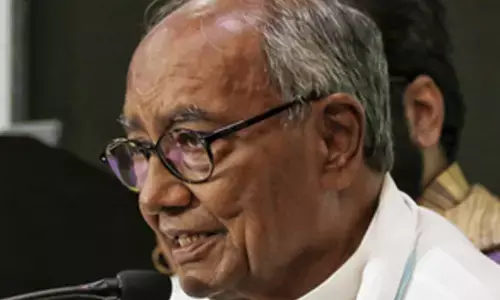Bridging skill gaps in a half-hearted manner will not be enough in India

The pace of imparting skills to our youth needs to be accelerated. It also needs to be seen whether the efforts and resources going into skill development programmes would lead to some tangible results or not.
The pace of imparting skills to our youth needs to be accelerated. It also needs to be seen whether the efforts and resources going into skill development programmes would lead to some tangible results or not.
The Minister of State (Independent charge) for Skill Development and Entrepreneurship, Jayant Chaudhary gave a detailed written reply in the Lok Sabha on July 29on the progress of Pradhan Mantri Kaushal Vikas Yojana (PMKVY) as on June 30.
According to the data, 13,724,226 candidates were trained or oriented under PMKVY 1.0 to PMKVY 3.0 across the country as on June 30. Though the absolute figure is not too impressive, one should appreciate the fact that at least something is being done to arm the youth with some skills in a country of 1.4 billion people. Let us also look at the number of candidates who were trained or oriented during the period of the programme under review in some of the major states of the country. It was 457,562 in Andhra Pradesh, 720,740 in Assam, 633,217 in Bihar, 411,395 in Gujarat, 274,215 in Jharkhand, 517,238 in Karnataka, 908,074 in Madhya Pradesh, 1,217,288 in Maharashtra, 553,217 in Odisha, 759,666 in Tamil Nadu, 422,656 in Telangana, 1,947,356 in Uttar Pradesh, 586,083 in West Bengal, 651,495 in Haryana, 435,141 in Punjab, 1,094,168 in Rajasthan, and 254,574 in Kerala.
The figures are neither encouraging nor frustrating but they certainly underscore the pressing need for expanding the pace of skill development programmes in the country.
Presently under the Government of India’s Skill India Mission (SIM), MSDE delivers skill, re-skill and up-skill training through an extensive network of skill development centres or institutes under various schemes such as PMKVY, Jan Shikshan Sansthan (JSS), National Apprenticeship Promotion Scheme (NAPS) and Craftsman Training Scheme (CTS) through Industrial Training Institutes (ITIs), to all the sections of the society.
SIM endeavours to enable youth to be future-ready after being equipped with industry relevant skills. In the JSS scheme, priority is given to women, SCs, STs, OBCs and minorities in the rural areas and urban low-income areas.
It is being said that 508 Pradhan Mantri Kaushal Kendras (PMKK) are operational as on June 30. Similarly, training under PMKVY 4.0 is being conducted at 12,257 locations across the country, including 10,006 short term training centres and 2251 locations for recognition of prior learning. To monitor the effectiveness of the skill training provided under PMKVY, the Ministry has launched Skill India Digital Hub (SIDH), a unified platform that integrates skilling, education, employment and entrepreneurship ecosystems to provide a life-long array of services targeting a wide range of stakeholders.
The whole training life cycle of candidates and their tracking from enrolment to post certification follow-up, details of trainers and assessors, accreditation and affiliation of training provider and training centre is captured and monitored through the SIDH. It performs Aadhaar authentication and de-duplication check of candidates at the time of enrolment. SIDH is also integrated with the Public Financial Management System (PFMS) platform to enable e-payments under Direct Beneficiary Transfer (DBT) for all eligible stakeholders. In addition, details of the trained candidates are available on SIDH portal for connecting with potential employers.
Now let us look at the placement scenario. Under the PMKVY scheme, placements were tracked in the Short-Term Training (STT) component in the first three versions of the scheme, which is PMKVY 1.0, PMKVY 2.0 and PMKVY 3.0 implemented from FY 2015-16 to FY 2021-22. For some surprising reasons, placement is delinked from PMKVY 4.0, the current version of the scheme under implementation from FY 2022-23 onwards. Under the first three versions, out of 56.88 lakh candidates who have been certified in STT, 24.3 lakh candidates have been reported as placed. Out of these 24.3 lakh, 2.94 lakh have been reported to be self-employed.
Without casting any aspersion on the sanctity of the official data, I would like to vouch for the fact that too little is being done to address the country’s severe skill poverty.
How much money is being spent on PMKVY? According to the Union Ministry of Skill Development and Entrepreneurship, Rs. 1,749.22 crore was allocated to the PMKVY in Financial Year (FY) 2019-20, Rs. 1534.39 crore in 2020-21, Rs. 1,438 crore in 2021-22, Rs. 739.26 crore in 2022-23, and Rs. 920 crore in 2023-24. The expenditure during these five years has been pegged at Rs. 1,613.26 crore, Rs. 1,514.76 crore, Rs. 1,043.21 crore, Rs. 233.26 crore and Rs. 502 crore, respectively. Do we find a mismatch between what has been spent under the PMKVY and what the tangible outcome has been as claimed by the Union Ministry of Skill Development and Entrepreneurship?
A thorough and rigorous audit of the capacity at every centre operating under the PMKVY will perhaps ensure the programme’s success across the country. With the objective of empowering India’s youth through skill development, it is crucial that each training centre is fully equipped and capable of delivering on its promises. A ruthless auditing process would help identify discrepancies, inefficiencies, and gaps in infrastructure, thereby ensuring that resources are optimally utilized and that the program’s intended beneficiaries receive the highest quality of training. This approach will also promote accountability, enhance transparency, and ultimately strengthen the credibility and effectiveness of the PMKVY initiative. In a country like ours where mass joblessness has been a chronic issue for decades, being callous and irresponsible in skilling the youth will be fraught with severe repercussions. A lack of focus on developing the right skills for the job market will further widen the gap between available jobs and the capabilities of the workforce, exacerbating unemployment and underemployment.










